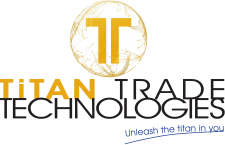
6 Courses

Microsoft Certified - Windows Server Hybrid Administrator Associate
Microsoft Certified - Windows Server Hybrid Administrator Associate
Certification details
As a candidate for the Windows Server Hybrid Administrator Associate certification, you should have subject matter expertise in configuring and managing Windows Server on-premises, hybrid, and infrastructure as a service (IaaS) platform workloads.
Your responsibilities in this role include integrating Windows Server environments with Azure services and managing Windows Server in on-premises networks. In this role, you manage and maintain Windows Server IaaS workloads in Azure, in addition to migrating and deploying workloads to Azure.
You typically collaborate with:
- Azure administrators
- Enterprise architects
- Microsoft 365 administrators
- Network engineers
As a candidate for this certification, you administer core and advanced Windows Server workloads and services using on-premises, hybrid, and cloud technologies. You should have expertise in implementing and managing on-premises and hybrid solutions, such as identity, management, compute, networking, and storage.
You should also be an expert at performing tasks related to security, migration, monitoring, high availability, troubleshooting, and disaster recovery. You use administrative tools and technologies, including:
Windows Admin Center
- PowerShell
- Azure Arc
- IaaS virtual machine (VM) administration
You also work with:
- Azure Automation Update Management
- Microsoft Defender for Identity
- Azure Security Center
- Azure Migrate
- Azure Monitor

Microsoft Certified - Azure Administrator Associate
Microsoft Certified - Azure Administrator Associate
Certification details
As a candidate for this certification, you should have subject matter expertise in implementing, managing, and monitoring an organization’s Microsoft Azure environment, including:
Virtual networks
- Storage
- Compute
- Identity
- Security
- Governance
As an Azure administrator, you often serve as part of a larger team dedicated to implementing an organization's cloud infrastructure. You also coordinate with other roles to deliver Azure networking, security, database, application development, and DevOps solutions.
You should be familiar with:
Operating systems
Networking
Servers
Virtualization
In addition, you should have experience with:
PowerShell
Azure CLI
The Azure portal
Azure Resource Manager templates
Microsoft Azure Active Directory (Azure AD), part of Microsoft Entra

Microsoft Certified - Azure Fundamental
Microsoft Certified - Azure Fundamental
Certification details
Whether you’re new to the field or a seasoned professional, mastering the basics in Microsoft Azure can help you jump-start your career and prepare you to dive deeper into the many technical opportunities Azure offers.
This certification validates your foundational knowledge of cloud concepts in general and Azure in particular. As a candidate for this certification, you can describe Azure architectural components and Azure services, such as compute, networking, and storage, as well as features and tools to secure, govern, and administer Azure.
The Microsoft Certified: Azure Fundamentals certification could be a great fit for you if you’d like to:
Prove your knowledge of cloud computing concepts, models, and services, such as public, private, and hybrid cloud, in addition to infrastructure as a service (IaaS), platform as a service (PaaS), and software as a service (SaaS).
Show your expertise on how Azure supports security, privacy, compliance, and trust.
It’s recommended to have skills and experience working with an area of IT, such as infrastructure management, database management, or software development. You can use your Azure Fundamentals certification to reinforce your basics for other Azure role-based or specialty certifications, but it isn’t a prerequisite for any of them.
To prepare for the exam, we recommend that you:
Fully understand the skills measured.
Study the relevant self-paced content on Microsoft Learn, attend a Microsoft Azure Virtual Training Day: Fundamentals, or sign up for an instructor-led training event with a Training Services Partner.
Take the free Practice Assessment to validate your knowledge.
Get a trial subscription and give it a try.
Check out Master the basics with the Azure Fundamentals certification to learn more about this certification and how to get ready.

Microsoft 365 Certified - Messaging Administrator Associate
Microsoft 365 Certified - Messaging Administrator Associate
Microsoft 365 messaging administrators manage a secure, efficient, and effective email collaboration platform using Microsoft Exchange Online and Microsoft 365.
Messaging administrators plan, configure, and manage recipients, mail flow, threat protection, compliance, and client connectivity.
Messaging administrators collaborate with administrators of other workloads, including security, compliance, identity, and networking, to implement a secure cloud messaging topology that meets the business needs of an enterprise.
Candidates for this certification should have a working knowledge of authentication types, licensing, integration with Microsoft 365 applications, Exchange Management Shell, Microsoft Purview, and Microsoft Azure Active Directory (Azure AD), part of Microsoft Entra.

Microsoft 365 Certified - Modern Desktop Administrator Associate
Microsoft 365 Certified - Modern Desktop Administrator Associate
As a candidate for this certification, you have subject matter expertise deploying, configuring, protecting, managing, and monitoring devices and client applications in a Microsoft 365 environment. You’re responsible for:
Managing identity, security, access, policies, updates, and apps for endpoints.
Implementing solutions for efficient deployment and management of endpoints on various operating systems, platforms, and device types.
Implementing and managing endpoints at scale by using Microsoft Intune, Windows 365, Windows Autopilot, Microsoft Defender for Endpoint, and Azure Active Directory (Azure AD), part of Microsoft Entra.
As an endpoint administrator, you collaborate with architects, Microsoft 365 administrators, security administrators, and other workload administrators to plan and implement a modern workplace strategy that meets the business needs of an organization.
You must have experience with Azure AD and Microsoft 365 technologies, including Intune, as well as strong skills and experience in deploying, configuring, and maintaining Windows client and non-Windows devices.

